Activism
Released E-mails Call into Question Proposed Wood Street RV Site
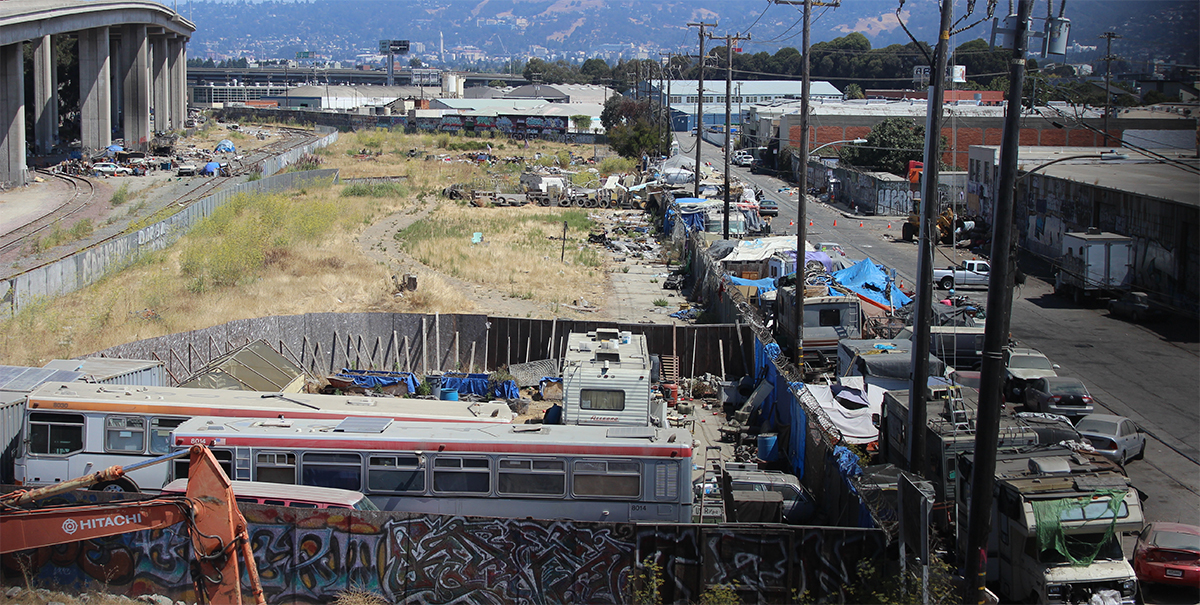
In the summer of 2019 Mayor Libby Schaaf announced plans to construct a safe RV parking site for unhoused residents living along Wood Street in West Oakland but recently released e-mails call those plans, and the intentions of those plans, into question.
The proposed site, if constructed, would be available for some people living on and just west of Wood Street and between 24th and 26th streets in West Oakland. That area is densely populated with around 100 people living in vehicles, self-made homes, and tents.
The site would allow them to have electrical hookups, freshwater, regular trash and bathroom services but would only be available for those who live in RVs. It is unclear how long RV dwellers could live on the site.
City administration drafted lease terms in August and September 2019 to rent a 1.5-acre tract of land covered mostly in dirt and stone just west of Wood Street from Game Changer LLC, a San Francisco-based company owned by a billionaire named Fred Craves. At the time, Game Changer had left the land unused for years and many people already lived there. While no rent was to be charged, the 18-month draft of the lease stipulated that the city would agree to pay about $33,000 per year in property taxes for Game Changer.
Clarifying the city’s plan for Game Changer, the lease quoted the City of Oakland Geographical Emergency Shelter Intervention Policy which laid out two goals for the site: “provide respite and stabilization to the unsheltered community” and “alleviating the impact the encampments have on the surrounding community.”
“When a site is scheduled to open,” reads the policy “the city determines an area surrounding the site that is considered an invitation zone.”
According to the policy, people in the invitation zone are offered space in the site, but after the site fills up “the invitation zone becomes the closure zone and enforcement is used to remove or prevent the return of any encampment in that area.”
While the city administration has maintained that the proposed site intends to help the community of unhoused people living on Wood Street, the stated policy implies that those living in tents or self-made homes in the area would be displaced as they could not move into the safe RV parking site.
“Closure Zones are the highest priority to maintain as they surround the emergency shelter intervention and can have an impact on normal operations at the intervention site” the policy stated.
An email from the area’s Councilmember Lynette Gibson McElhaney to Assistant City Administrators Joe DeVries and Maraskeshia Smith also suggests that by late October of that year, the planned construction of the site was in doubt.
The e-mail, dated Oct. 29, 2019, shares notes taken from a meeting McElhaney attended with the city administration earlier that day. Under a heading marked “Wood Street,” her notes read “Administration no longer considering location for RV parking; cost to prep and clear are excessive.”
“I cannot provide any updates on the Wood Street effort as joint meetings we had sought to convene were discontinued when the administration let me know that they were not moving forward with the RV site,” McElhaney wrote in response to questions about her October notes and the current plans for Wood Street. “Sometime later I was told RVs were still planned but I have not been provided details.”
About a week after the meeting with McElhaney, on Nov. 5 and 6, 2019, the city of Oakland cleared vehicles and residents off of Game Changer LLC’s land. They faced resistance as the United Front Against Displacement (UFAD), a grassroots organization that sponsors protests and does mutual aid projects with Wood Street residents, organized a rally where about 35 protesters supported residents who stayed on Game Changer’s land and refused to move.
While many other residents moved onto Wood Street, where they are now more densely packed together and closer to traffic, five people refused to leave Game Changer’s land.
One resident was Natasha Noel, who worried that her damaged vehicle with no wheels would be broken if moved. Another resident, Mavin Carter-Griffin who has been on the land for over five years, lives in a self-constructed shelter and her displacement would mean destroying her home. A third resident, Cam McKeel, lives in a large bus and does not know where else he could park it if forced to move or if the bus would be allowed in a safe RV parking site.
Although the company has erected a fence around their land, hired a security guard, and served the residents’ eviction notices, four residents, including Carter-Griffin and McKeel remain on the land. Noel has moved in with her daughter.
An e-mail from Dec. 13, 2019, by Patricia Smith, a lawyer for Game Changer, to Assistant City Administrator Joe DeVries and Deputy City Attorney Joe Flanders stated that Game Changer intended to clear residents from the site by December 20 so the city could control the property. After the date passed, Game Changer still had not gotten residents to leave.
On Feb. 3, 2020, the San Francisco Chronicle published an article that called into question residents’ decisions to stay on Game Changer’s land and suggested the decision was preventing the construction of the safe RV parking site. The piece quoted Dayton Andrews, an organizer with the UFAD.
“No one’s actually been given a promise that they’ll get a spot in the Wood Street lot,” Andrews said in the article. “They’ve been given no written proof that they will get to be on this safe parking lot. Folks would like to use the service, but they’d actually want assurance that the service would come through.”
Later that day Maraskeshia Smith e-mailed DeVries to ask about the article and the Wood Street plan.
“I think we have done all we can until the courts and attorneys do their work,” DeVries responded in an e-mail, referring to the eviction notices that Game Changer had served to residents. “I do believe it is worth switching gears and focusing on opening the Post Office site.”
When The Post News Group e-mailed DeVries about the plan for Wood Street and the Post Office site, DeVries did not respond but forwarded the inquiry to Public Information Officer Autumn King.
King acknowledged that the city administration “did initially express concern about the cost of site prep and clearing” but also stated that “the city is still working closely with the property owner to move forward with the lease.”
“Once the owner informs the city that the site is available,” she wrote, “we can resume established plans and open a site.”
King did not respond to a direct question asking if a lease between Game Changer and the city had been signed.
King described the Post Office Site as an RV safe parking site planned for a tract of land behind the West Oakland Post Office that the city has been trying to construct since January 2020 but has been blocked by a hold the Federal Highway Administration has put on homeless interventions on highway-owned land.
At the time of writing, Game Changer’s land sits vacant except for four residents. The large community of people living in tents, RVs and self-made homes mostly live densely packed together on Wood Street, although some live under the 880 Highway on land owned by CalTrans.
Residents report that the city is not providing hand-washing stations, freshwater or dumpsters to the community. They have been provided with two portable toilets. A visit to the site on August 11 showed one toilet had been serviced that day, but the other was last serviced on July 20.
The UFAD and The Berkeley Free Clinic have provided some hand-washing and freshwater stations to the community, but the needs of the population far outnumber the ability of the two small organizations to meet them.
Residents are still unclear when or if a safe RV parking site will be available and, if it is constructed, who will be allowed to use it.
Activism
Calif. Anti-Sex Trafficking Advocates Discuss Competing Bills, Strategies
Advocates from across California are challenging state officials and community leaders to support legislation that provides resources and services for survivors and victims of human trafficking, as well as assistance as they transition back into civil society. Some of those advocates are also calling for more effective state policy to curtail trafficking, a crime that has an outsized impact on Black children, particularly girls.

By Bo Tefu, California Black Media
Advocates from across California are challenging state officials and community leaders to support legislation that provides resources and services for survivors and victims of human trafficking, as well as assistance as they transition back into civil society.
Some of those advocates are also calling for more effective state policy to curtail trafficking, a crime that has an outsized impact on Black children, particularly girls.
According to the FBI, a report covering a two-year period found Black children accounted for 57% of all juvenile arrests for prostitution. In addition, 40% of sex trafficking victims were Black and 60% of those victims had been enrolled in the foster care system.
“It is time to hold the perpetrators who take advantage of our children accountable,” said the Rev. Shane Harris, a San Diego-based activist, former foster youth and founder of the Peoples Association of Justice Advocates, (PAJA), a national civil rights organization and policy think tank.
“It is time to send a thorough message that if you seek to buy a child for sex, you will pay the highest criminal penalties in this state,” added Harris who was speaking at a rally at the State Capitol earlier this month. Harris was speaking in support of Senate Bill 1414, authored by Sen. Shannon Grove (D-Bakersfield), which calls for people who buy sex from minors to be punished with a felony. The punishment includes a two-year prison sentence and a $25,000 fine.
Harris said the PAJA is the only civil rights organization in the state that supports SB 1414.
Harris urged other Black-led groups who favor anti-trafficking legislation more focused on criminal justice reforms (as opposed to stiffer penalties), to “join the movement.”
Many of those civil rights groups fear that SB 1414 could lead to the incarceration of more Black youth.
Those sentiments were echoed in a panel discussion organized by Black women advocates on April 26 to examine the cause and effects of human trafficking in California’s Black communities. The virtual event was hosted by the Forgotten Children, Inc, a faith-based nonprofit that advocates for survivors and victims of human trafficking through anti-trafficking campaigns and initiatives.
Panelists shared the psychological impact of sexual exploitation on youth and children in the long term.
Author and educator Dr. Stephany Powell shared statistics and information revealing that African American women and girls are the most trafficked nationwide.
Powell, who serves as the senior advisor on law enforcement and policy at the National Center on Sexual Exploitation said that national data indicates that sex trade survivors are disproportionately women of color. She stated that male survivors often go unnoticed because boys rarely report trafficked crimes.
Powell said that decriminalizing prostitution in California could increase human trafficking. She argued that Senate Bill 357, authored by Sen. Scott Wiener (D-San Francisco), which was signed into law in 2022 and legalized loitering for prostitution, caused a surge in street-level prostitution.
Panelist and psychologist Dr. Gloria Morrow shared opposing views on decriminalizing prostitution. She said that decriminalizing prostitution could help survivors gain access to state resources and support.
Despite opposing views, Powell and Morrow agree that the Black community needs resources and educational programs to address human trafficking.
Activism
Obituary: Social Justice Leader, the Rev. Cecil Williams, Passes at 94
On April 22, community leader and social justice advocate Reverend Cecil Williams died at his home in San Francisco surrounded by his loved ones, according to his family. He was 94 years old.
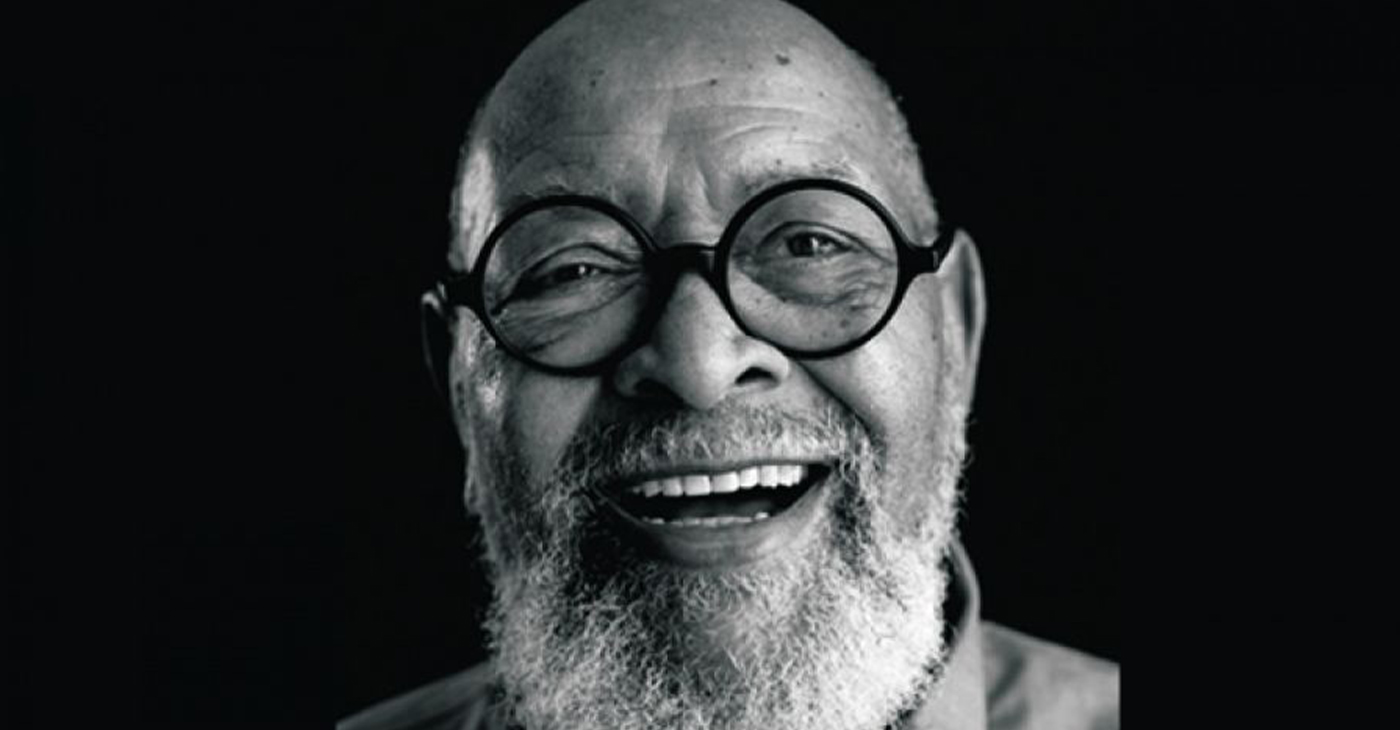
By California Black Media
On April 22, community leader and social justice advocate Reverend Cecil Williams died at his home in San Francisco surrounded by his loved ones, according to his family.
He was 94 years old.
The reverend was a civil rights leader who advocated for the equal rights of lesbian, gay, bisexual, transgender, and queer people in the Bay Area.
Williams was the head pastor of the non-denominational GLIDE Memorial United Methodist Church. The church welcomed individuals from the queer community and people struggling with homelessness, housing instability and substance use disorder (SUD).
Through his work, Rev. Williams attracted national attention. Prominent political and cultural leaders such as Maya Angelou, Bono, Oprah Winfrey, and Bill Clinton all attended church services at Glide.
Congressmember Barbara Lee (D-CA-12) said she is deeply saddened about the passing of her dear friend.
“The Reverend changed the lives of millions through radical love, support, inclusivity, and a commitment to service to the most marginalized,” Lee said.
Gov. Gavin Newsom said that the reverend inspired people across California to embody the values of generosity and acceptance.
Rev. Williams was, “a visionary leader whose legendary compassion and love for his community transformed the lives of people from all walks of life,” Newsom said.
Rev. Williams served as the chief executive officer of the Glide Foundation until his retirement in 2023.
Activism
Oakland Post: Week of May 1 – 7, 2024
The printed Weekly Edition of the Oakland Post: Week of May 1 – 7, 2024

To enlarge your view of this issue, use the slider, magnifying glass icon or full page icon in the lower right corner of the browser window. ![]()
-

 Community2 weeks ago
Community2 weeks agoFinancial Assistance Bill for Descendants of Enslaved Persons to Help Them Purchase, Own, or Maintain a Home
-

 Activism4 weeks ago
Activism4 weeks agoOakland Post: Week of April 3 – 6, 2024
-

 Business3 weeks ago
Business3 weeks agoV.P. Kamala Harris: Americans With Criminal Records Will Soon Be Eligible for SBA Loans
-

 Activism3 weeks ago
Activism3 weeks agoOakland Post: Week of April 10 – 16, 2024
-

 Community3 weeks ago
Community3 weeks agoAG Bonta Says Oakland School Leaders Should Comply with State Laws to Avoid ‘Disparate Harm’ When Closing or Merging Schools
-

 Community2 weeks ago
Community2 weeks agoOakland WNBA Player to be Inducted Into Hall of Fame
-

 Community2 weeks ago
Community2 weeks agoRichmond Nonprofit Helps Ex-Felons Get Back on Their Feet
-

 Community2 weeks ago
Community2 weeks agoRPAL to Rename Technology Center for Retired Police Captain Arthur Lee Johnson

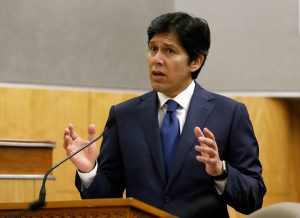
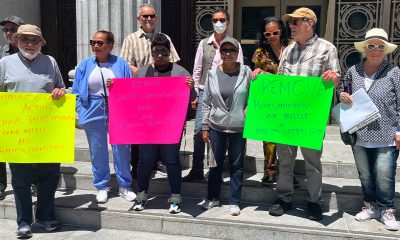

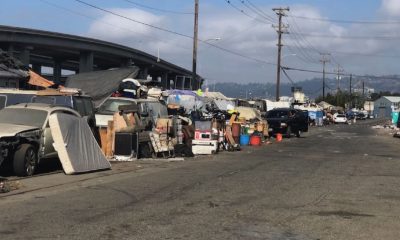

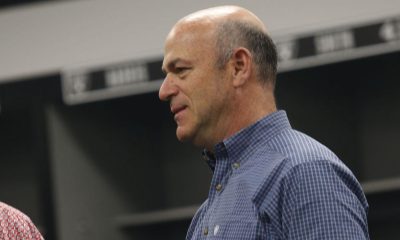



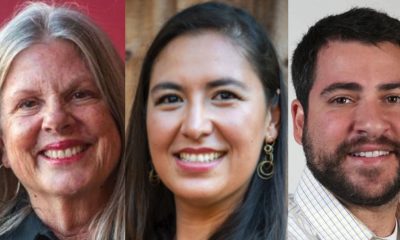

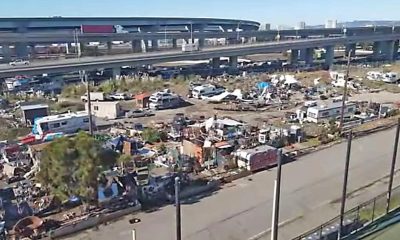











































Pingback: Activists are Gathering to Prevent Eviction of Homeless in West Oakland | Post News Group